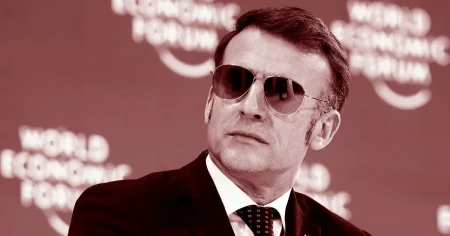Johan Pehrson, leader of the Liberal Party (L) in Sweden, made a rather insightful, albeit ambiguous, observation during the presentation of the Tidö Agreement, the political pact that formed the current Swedish government: what parties say before an election isn’t necessarily what they do after. The ensuing actions of the Liberal Party certainly proved this point, leaving many wondering if the party’s pre-election promises held any real weight.
Prior to the election, the Liberals vehemently opposed several key policy points championed by the Sweden Democrats (SD), a right-wing populist party. These included the implementation of visitation zones, the use of anonymous witnesses, a heightened focus on repatriation, reduced foreign aid, and a rollback of climate policies. Despite these stated objections, the Tidö Agreement, signed after the election, saw the Sweden Democrats gain significant ground on these very issues. The Liberals, despite their proclaimed commitment to limiting the influence of their ”main opponent,” as they referred to the SD, ultimately conceded on these crucial points, effectively rewriting their pre-election platform. This left many questioning the sincerity of their earlier pronouncements.
This pattern of pre-election promises being discarded post-election seems to be repeating itself as the next election approaches. The Sweden Democrats, emboldened by their previous successes, are now demanding cabinet positions within the government. While the Liberals are currently publicly opposing this demand, their past actions suggest a potential for a similar reversal after the election. Pehrson, while acknowledging his party’s official stance, hints at the possibility of ”reassessments,” mirroring his earlier justification for the compromises made in the Tidö Agreement. This raises serious concerns about the Liberals’ commitment to their stated positions and whether their pre-election rhetoric is anything more than political maneuvering.
Pehrson’s comments also highlight a concerning trend within the Liberal Party, a pattern of prioritizing the prevention of a Social Democratic government above all else, even their own stated policy positions. This overarching goal appears to be the driving force behind Pehrson’s leadership, justifying the significant concessions made to the Sweden Democrats. He readily admits that his primary objective is to prevent a Social Democratic prime minister, even if it means empowering the Sweden Democrats, granting them both influence over government policy and potential cabinet seats. This unwavering focus on blocking the Social Democrats raises questions about the Liberals’ true political priorities and whether they are willing to sacrifice their core values to achieve this single objective.
This apparent disconnect between pre-election rhetoric and post-election actions has drawn considerable criticism, with many accusing the Liberal Party, and Pehrson specifically, of repeatedly ”folding” to the demands of the Sweden Democrats. However, the issue is more nuanced than simply blaming the party as a whole. While there is internal resistance within the Liberals, particularly from the youth wing, against collaborating with the Sweden Democrats and conceding on key policy points, Pehrson’s leadership has effectively overridden these concerns. His focus on preventing a Social Democratic government seems to trump all other considerations, leaving many within the party feeling unheard and marginalized.
In conclusion, the Liberal Party’s actions under Pehrson’s leadership reveal a concerning trend of prioritizing political expediency over stated principles. The willingness to compromise on core values in pursuit of a single objective – preventing a Social Democratic government –raises questions about the party’s integrity and the true meaning of their pre-election promises. As the next election approaches, the Liberals face a critical choice: uphold their stated principles or once again prioritize short-term political gains, potentially further empowering the very party they claim to oppose. The internal dissent within the party, coupled with the public scrutiny surrounding their previous concessions, suggests that this decision will have significant ramifications for the Liberals’ future.














